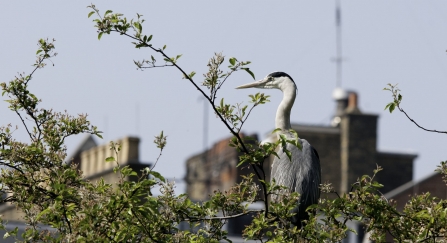The WMCA has the opportunity to show leadership here, forging a path out of this crisis by putting a resilient economy, healthy communities, and a thriving natural world at the heart of the recovery action plan. The current COVID-19 pandemic has highlighted the inequalities in people’s access to nature and the need for bigger, better, more joined up areas that benefit wildlife and people.
We know that greenspace performs so many vital functions for people - cleaning air, combatting flooding and cooling cities as well as the well-studied benefits to health and wellbeing which help to improve everyone’s lives. Access to greenspace can improve mental health, combat stress, increase productivity at work and lead to a healthier lifestyle.
The WMCA has a unique opportunity to design a recovery plan that places the natural environment at the heart of decision making, creating a more environmentally sustainable, resilient and socially equal future for everyone.

